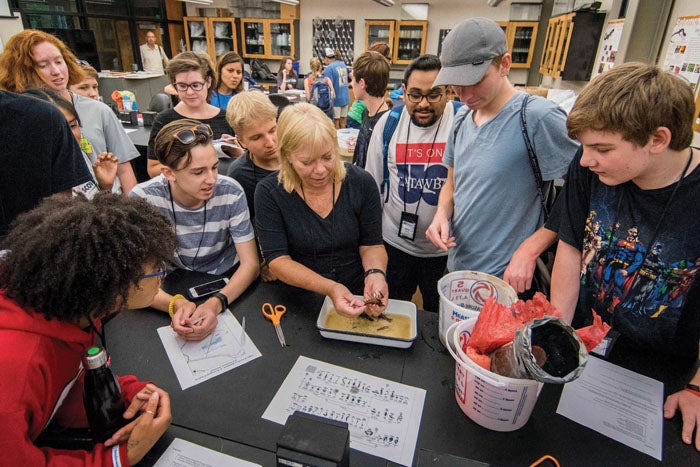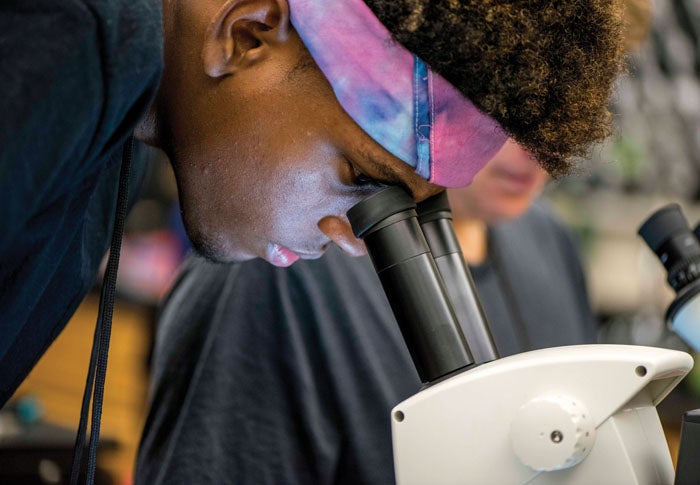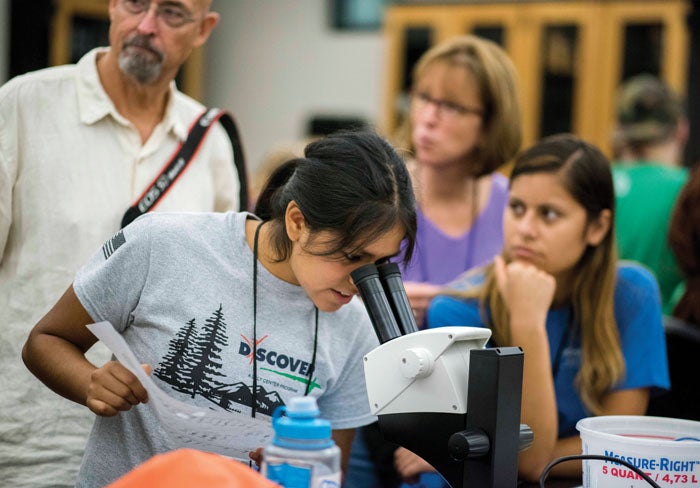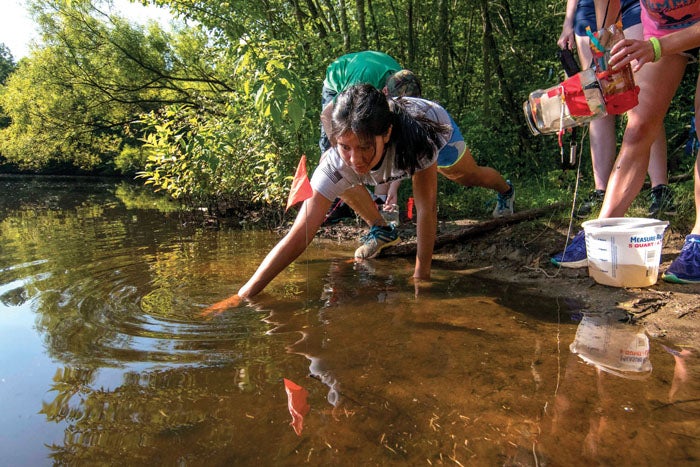Students get close to nature during Catawba College’s National Environmental Summit
Published 12:10 am Monday, July 17, 2017
In a first-floor lab at Catawba College’s Center for the Environment, a group of nearly 30 teens has just trudged in from the nature preserve. They’ve worked in small groups to design devices for catching and inventorying wetland animals.
Now, it’s time to see just how well their contraptions worked. Sodden and sticky from their treks, the students pour collected buckets of swamp water into white metal trays for observation.
This was the scene Friday morning during Catawba’s seventh annual National Environmental Summit, a five-day experience offered for teenagers aged 14 to 17.
“Nothing but dissolved grass!” one student said as he observed his tray, disappointment heavy in his voice. Lisa Wear, an adjunct professor at Catawba College and the leader of Friday’s activity, answered.
“See, you don’t know that. There may be some things in there you can’t see!”
Friday’s activity reflected a current real-world initiative. Specifically, researchers are working to develop a global inventory of all living organisms, as scientists posit 86 percent of Earth’s inhabitants are yet unknown.
“The whole idea is that with the technology that we have it’s going to take anywhere from 30 to 40 years to complete a global inventory,” Wear said. “(W)ith the right technology, we may be able to cut 25 years off that.”
Summit attendees used recyclables to engineer new and innovative collecting devices in attempts to create this more efficient technology: plastic bags and bottles, jugs and the like. Many of their prototypes held promise, as evidenced by collection bins containing worms, small fish, water spiders and crayfish.
The National Environmental Summit is offered through a partnership between Catawba College, Environmental Working Group, Yellowstone Forever and Rocky Mountain Institute. Leaders and counselors report that the experience fosters initiative, collaboration and whole systems thinking in its participants.
Deep Dave, a rising senior at Catawba and one of these counselors, attended the camp in the summer before his senior year in high school. He credits the experience for making him a more active and responsible citizen of the world.
Now in his third year as a counselor, he sees this change in the summit’s students as well.
“I think they get the motivation to take initiative,” he said. “Children nowadays have so many great ideas and they’re so creative, but they just need that extra push to say, ‘hey you can do it.’ ”
Macayla Upright, a rising Catawba sophomore and fellow camper-turned-counselor, feels equally thrilled about the camp’s impact on young learners. Learners under her supervision share with her their enthusiasm for their work in the preserve and their experience handling animals in camp activities.
This environment and sustainability major with a concentration in natural resource management said hearing this excitement is a rewarding experience.
“It’s amazing to see kids develop an enthusiasm for what you’re enthusiastic for.”







